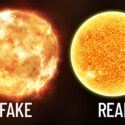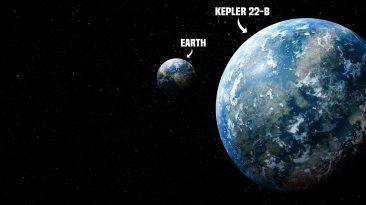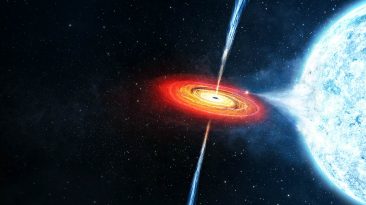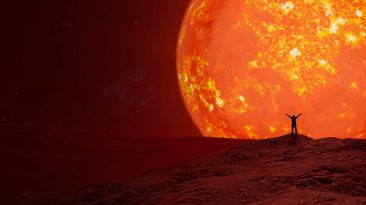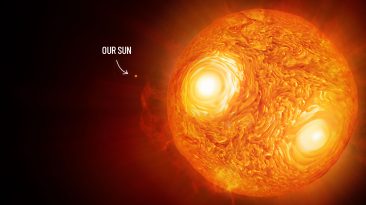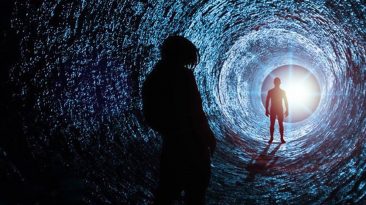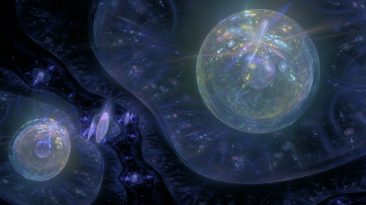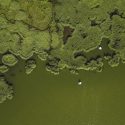Greetings, future moonling. That’s right. You are among the first generation of children born on the Moon. How would your birth compare to every previous human’s? Would your body be physically different than an earthling’s? And what challenges would you face if you traveled to Earth?
If you were born on the Moon, you’d begin your life 384,400 km (238,855 mi) away from where every other human being has ever been born. At least, as far as we know. The surface of your birthplace would have an extremely thin atmosphere without liquid water. The radiation levels could be up to 1,000 times higher than on Earth’s surface.
And the scorching daytime temperatures at the equator get as high as 120 °C (250° F) and as frigid as -130 °C (-202 °F) at night. Of course, your mother wouldn’t give birth to you out on the Moon’s surface. Your life would begin in a state-of-the-art base surrounded by a handful of astronauts. But with six times less gravity than on Earth, would being born on the Moon be extremely dangerous?
Right now, a Moon base is only theoretical. Your first home on the Moon might be a habitat based on Project Horizon. It was a concept proposed by the U.S. military in 1959. Whether the base got built into caves using pressurized airbags or a high-tech cylindrical air-lock dug into the surface, you’d be born into an incredible self-sustaining habitat.
You’d harvest the oxygen you’d breathe and water you’d drink would be harvested from the Moon’s natural environment. Your birth wouldn’t have been a walk in the park for your parents either. Since you’d be the first space baby, there wouldn’t be any research on whether it’s more challenging to conceive a child in space. But your folks were successful. And you probably wouldn’t want to hear much about that anyway.
The Moon’s lower gravity would have made your birth especially challenging. As a fetus, you’d have developed slower. So the length of time your pregnant mother carried you could have been longer than on Earth. Imagine being pregnant in space for up to one full year. Your birth would likely have taken longer than back on Earth too.
For every month your mother has spent in space, she could have lost about 1-2% of her bone density. That would have made pushing you out a lot more difficult. And dangerous. With the risk that giving birth could fracture your mother’s pelvic bone, the doctors in your space habitat would have brought you into the world using a C-section operation. And every baby born on the Moon after you would likely be born this way too.
This could lead to one of the first big differences between Earth and Moon babies. Our heads evolved to be small enough to fit through the birth canal. So with no traditional childbirths on the Moon, future moonlings could evolve to have bigger heads than their Earth counterparts. Moon-born children could even evolve to have different skin color than the folks back on Earth.
The melanin in our skin protects us from the Sun’s radiation. And the darker your skin, the more natural protection you have. There’s no atmosphere on the Moon, so you’d live with significantly less protection from radiation. So the skin color of future moonlings could evolve to be extremely dark to provide the protection they’d need.
But since a lot of your life would be spent inside a habitat or wearing a spacesuit, the opposite could be true. Humans on the Moon could evolve to be even paler than some people on Earth. The increased radiation could cause other changes too. If earthlings and moonlings didn’t produce offspring together, you could even see a new species of humans emerge.
OK, that could take a few hundred or even thousands of generations. But you’d have been the starting point in this incredible evolution of humanity. How much you interact with people from Earth would be a tricky question for you. Not enough mingling and your immune system could weaken. You could lose your ability to fight off infections brought to your base by visitors.
To be safe, you might minimize your contacts with new astronauts or settlers. The last thing you’d want is to start the first pandemic on the Moon. And if you ever made the trip to Earth, you’d find it very hard to adapt. You’d need a week or two just to adjust to the gravity. And you’d be plagued by light-headedness each time you stand up since the reflexes that regulate your blood pressure would be accustomed to lunar gravity, not Earth’s.
Be careful when jumping into any bodies of water too. You’re from a place where you must live inside and conserve water. So diving could be hard for you. You could get disoriented and accidentally dive deeper instead of coming to the surface. You could find that having a good view of the Earth makes up for the challenges of visiting it. If you live on the near side of the Moon, you’d be able to see Earth all the time.
Earth would even cast extra light onto you. Earth reflects approximately 37% of the sunlight it receives. So on the Moon, your view of the planet could be 43 times brighter than the view an earthling has looking up at you. Hopefully you wouldn’t grow up to be a light sleeper who needs total darkness. You’d be constantly bathed in both sunlight and Earthshine.
If that happens, maybe you could move over to the far side of the Moon and enjoy its constant darkness. And with such a thin atmosphere, you’d see stars even during the brightest parts of the day. Being born on the Moon would come with its pluses and minuses. But would it be even cooler if you were born somewhere else? Like on Mars.
Sources
- “Project Horizon: Army Base On The Moon”. Fred L. Borch. 2015. defensemedianetwork.com.
- “What Is Earth’s Average Temperature?”. Tim Sharp, Vicky Stein. 2022. space.com.
- “What Is The Temperature On The Moon?”. Tim Sharp, Doris Elin Urrutia. 2022. space.com.
- “What Is The Climate At The Equator? Is It Hot All Year Round?”. 2021. goweatherforecast.com.
- “Is There An Atmosphere On The Moon?”. 2022. nasa.gov.


